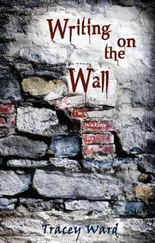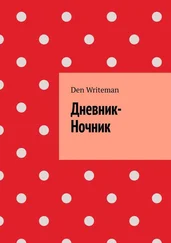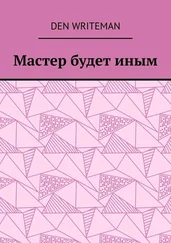After a few more Sundays we were really swinging, to the extent that I was encouraged to do sixteen-bar breaks. I’d no idea where these came or how long were sixteen bars. I just beat time until they all stopped playing and the pianist said, ‘Take it away, man,’ and I went into a drum routine, starting on the chair seat, ‘rack-a-tacket’ on the back of the chair, on the linoleum part of the floor to the arm of the settee, all to the accompaniment of ‘Yea, man, go for it.’ It was heady stuff.
A couple of Sundays later we were at the stage of getting together a programme for dancing and suggesting names for the band. There was ‘The Oldham Serenaders’ and ‘The Swinging Four’, but the favourite was ‘The Blue Rhythm Band’. I have no excuse for what happened next. Whatever possessed me to even consider we were ready for public scrutiny? But on the spur of the moment, unbeknownst to the rest of the band, I placed an advert in the Oldham Evening Chronicle: ‘THE BLUE RHYTHM BAND WILL PLAY AT ANY FUNCTION, DANCES, WEDDINGS, ETC. MODERATE TERMS’ and to my astonishment it was in the local paper that same evening. I couldn’t wait to take the cutting with me to show the lads next Sunday. My troubles, however, were just beginning. On Wednesday, only two days after the advert had appeared, I received a reply. I was absolutely flummoxed: it had never entered my head that somebody would write back—my thought process had ended with the advert.
Fortunately the letter contained a telephone number. Good, I only had to tell them that we had another engagement on that particular Saturday. Yes, that was it—simple. Standing in a telephone booth, I dialled the number and a very attractive woman’s voice answered. No, she hadn’t sent the letter; she was only the secretary to Mr Flintock, the secretary of the club. Her voice was so pleasant and seductive that I found myself discussing terms for an evening of dancing at a municipal hall in Hollinwood. Having agreed a fee, I was now a worldly business tycoon and ended the conversation by saying I was looking forward to seeing her at the dance.
It wasn’t till I’d walked halfway down the street that the enormity of my brashness came home to me. If only I had the address of the recruiting officer of the French Foreign Legion, I could be halfway to Sidi-Bel-Abbes by Sunday. Alas, this was not to be, and when I faced the lads on Sunday I confessed abjectly and fully. They looked at each other, and then the pianist said, ‘We’d better get down to it.’ We had only one Sunday left before we took to the road. Oh, how I loved my comrades at that moment, and how much I was looking forward to a week on Saturday! I was in the lofty realms of euphoria again, leaving myself wide open for the sucker punch. It was later that evening when the bombshell burst: I didn’t have a drum kit. I certainly couldn’t turn up at our debut with a pair of drumsticks and an old kitchen chair. Once more I fell on my feet. The pianist’s brother ran a musical instrument shop and I hired the accoutrements for the Sunday only and on the condition that I returned them in good order. I agreed and walked away with as much as I could afford, which unfortunately didn’t include a bass drum, but already I had an idea about that.
The days dominoed down to the fateful Saturday, and to seven o’clock in the evening, by which time the dancers were already changing their shoes in the cloakroom. The communal hall itself was a barn of a place, with chairs all round the dancing area and a stage where we would soon be performing. We were late, through no fault of our own: three trams had refused to take us on board. Normally tram conductors were in the main accommodating, but we were an odd collection. I was laden down with the big drum that I had borrowed from the Scout troop and a hired gold-glitter snare drum under my arm. The rest of the kit was packed in a suitcase crammed with the foot pedal for the big drum and a stand for the snare drum, not forgetting a carrier bag of sheet music. One witty conductor asked which one of us was Oscar Rabin.
Eventually thirty minutes later we were on the stage, busily sorting out our instruments. The bass player helped me with my stuff and picked up what he surmised was the stand for my snare drum. He looked at it curiously and then nudged me with it and whispered, ‘What’s this for?’ Now he’d opened it out I understood. In my hurry to get out of the musical instrument shop I’d hired myself an ordinary music stand instead of the stand to hold my crowning glory, the gold-glitter snare drum, but the music stand would have to do for tonight.
I carried on tightening the ropes on the big drum, flicking my finger against the skin to satisfy myself that it was taut enough for a quick step. All this time there was a puzzled silence from the waiting dancers. They were mostly middle-aged women—it must have been some kind of Mothers’ Union anniversary, or something like it. I fixed the foot pedal on to the big drum and balanced the gold-glitter snare drum on to the music stand, giving it two experimental taps to make sure that it didn’t bounce off. The pianist had opened the lid of the upright piano before placing his pile of music on top within easy reach. Then with an arpeggio the tuning began, by which time the dance should have been in full swing, having started forty-five minutes ago.
Apart from us musicians the place was tight with the silence of amazement, even when the pianist nodded his head and opened with a Paul Jones. Usually this was just a preliminary so that everyone could get acquainted. The ladies went round in a circle, the men walked round the ladies in the opposite direction and when the music stopped couples facing each other were either delighted or lumbered as they then slid into a foxtrot or a waltz.
None of this mattered at this particular dance, though, as nobody left their seats to take the floor. They just sat stupefied all through our massacre of ‘Here We Come Gathering Nuts in May’.
I was the first to crack. I had enough difficulty keeping the snare drum on the music stand, but a greater problem arose with the big drum. Every time I stamped on the foot pedal the big drum slid forward a few inches, and when the pianist had done about sixteen bars another calamity occurred: the pile of music on top of the piano dropped down into its innards, silencing the melody. We were left with only the thin whining of the fiddle for the tune, and only the Irish could dance to that. The situation was teetering dangerously close to farce. Stretched out almost flat on my back, looking as if I was on a recliner in my desperate attempt to get my toe on the foot pedal of the big drum before it ended up on the dance floor, I glanced fearfully at the immobile punters…Hostility, disbelief and outrage were the dominant expressions, directed at us maliciously. It was then that I noticed the secretary, who had met us on our belated arrival. He was standing in front of the stage, beckoning to me. I abandoned the big drum, went forward and bent down to hear what he had to say.
It was short and to the point. ‘What are your expenses?’ he hissed through gritted teeth.
I was so embarrassed that all I wanted at that moment was for a pile driver to trundle up and hammer me into the ground. I looked again at the lynch mob on the dance floor and whispered to him, ‘Is there a back door to this place?’
‘Behind you,’ he replied curtly. Then he turned to the audience with a grovelling smile and asked, ‘Is there anyone here who plays the piano?’
An old lady put up her hand and while we were feverishly struggling to collect our paraphernalia she was already thumping away at ‘Carolina Moonbeams’. For a moment there was no response: the dancers were still shell shocked. Then, realising that they weren’t going to get their money back, reluctantly they began to search out partners to express their grievances to as they shuffled round the floor.
Читать дальше












